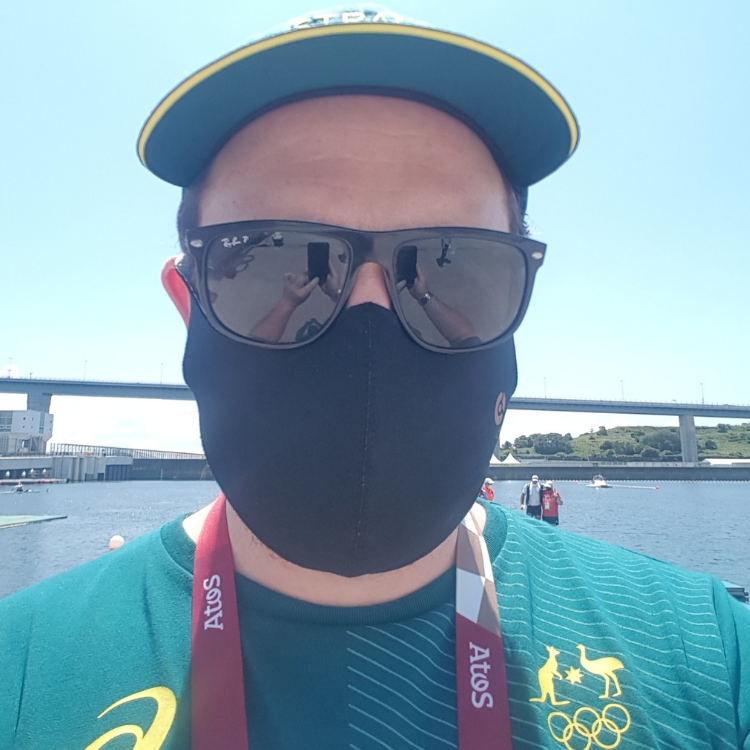Stories from the Tokyo Olympics

Dr Mark Wilson
ACSEP Registrar
It was a great opportunity to serve as the Rowing Australia team doctor for the Tokyo Olympic Games. Prior to leaving for Tokyo, a city I had never visited before and was apprehensive about traveling to due to their state of emergency, I spent a week with the team in Rockhampton in a lead-up training camp. I knew member of the men’s and women’s teams from previous regattas and simulation events, as well as from my time at the AIS; it was great to work with many of them again and see their progression. I was with the team from July 12 until August 1. I enjoyed the high intensity nature of managing this elite group of athletes. The role required clear communication with coaches and high-performance staff, teamwork with the sports science and physiology team and maintenance of a calm, measured approach when dealing with myriad medical and MSK problems, with a constant focus on performance.
The role required a good understanding of basic travel medicine. The key medical issue once we arrived in Tokyo was heat management. The conditions were hot and humid. The racing course was modern and high tech, but the abundance of concrete and a relative lack of shading, meant that the challenge of heat management was a constant one. Together with the sports science and physiology team, we worked to pre-cool athletes before racing, as well as cool them down once they got off the water. To add some complexity to the mix, we were unable to use ice baths due to COVID restrictions. We used ice vests and ice towels for external cooling and ice slushies for internal cooling. We developed a very formalised program which followed on from the heat acclimatization program which was implemented during our Rockhampton training camp. I believe that our heat management program was world class and helped support the athletes in their quest for excellence.
The second significant management issue was staying COVID free! I helped coordinate the daily testing of the entire team and support staff (around 60 people). The days were long, with early starts (0430) and I was on call 24/7 for whatever issues arose. There were a number of high-pressure situations and times when quick decisions had to be made, both around training and racing. The fact that we achieved two gold and two bronze medals in 70min of racing will never cease to amaze me. The team cohesion was at its peak, both on and off the water, and the success that was achieved was a real team effort. All crews performed well and did their nation proud. I will take away many fond memories from the time I spent with them.
